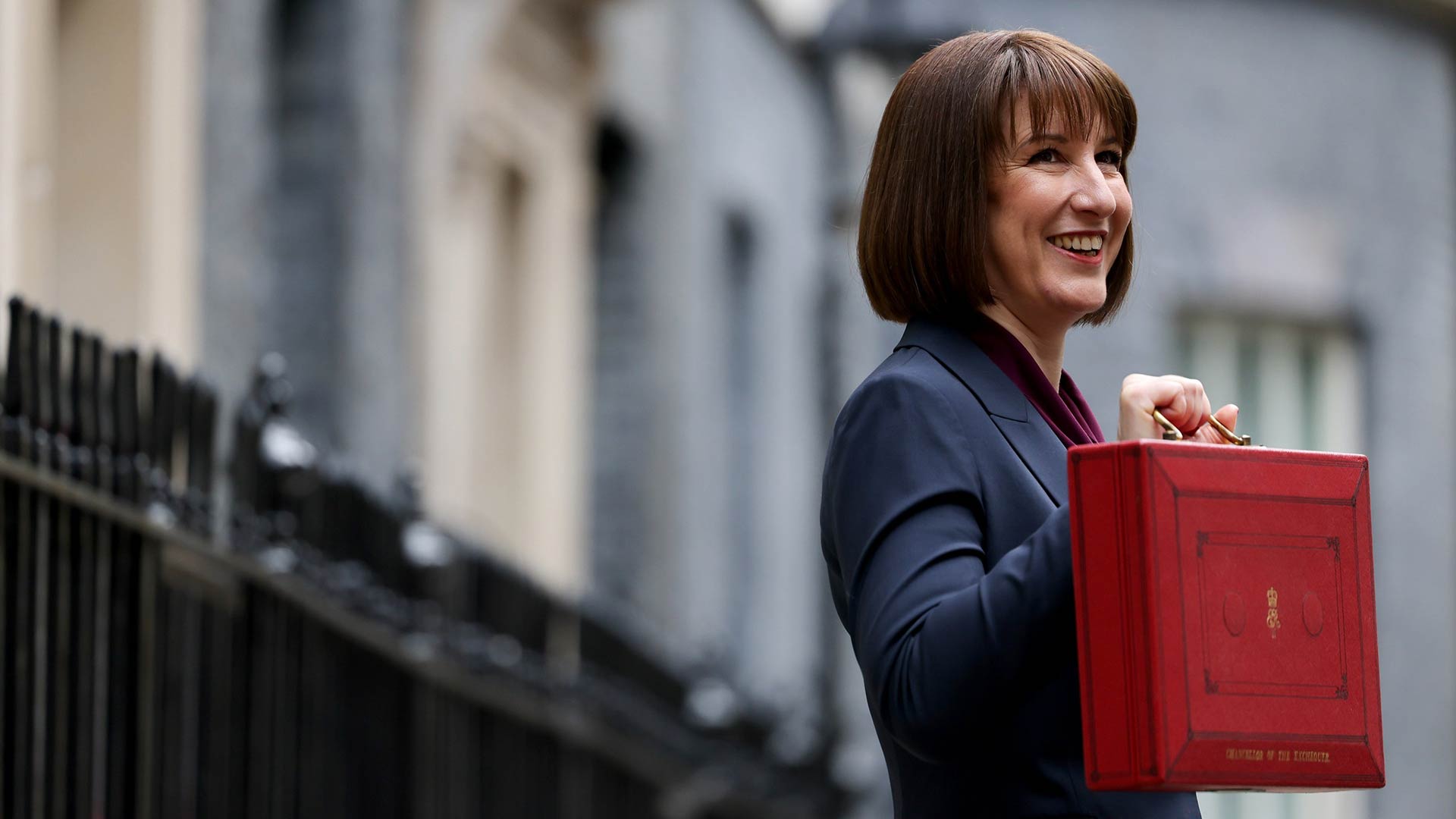You are viewing your 1 free article this month. Login to read more articles.
Budget 2024: Chancellor's changes to business rates and minimum wage 'set to hit booksellers' profits'
Chancellor Rachel Reeves today delivered the first Budget by a Labour government since 2010 with changes to minimum wages, a reduction in business rates relief and increased National Insurance for business owners set to affect bookshops.
Pledging to “invest, invest, invest” to drive economic growth and boost living standards, Reeves repeatedly highlighted a £22bn “black hole” inherited from the last government. She raised taxes by £40bn, which she said would “restore stability to public finances and rebuild our public services”.
Reeves confirmed sticking to the Labour manifesto pledges not to increase National Insurance, VAT or income tax. But she did confirm that employers’ National Insurance will go up by 1.2% to 15% from April 2025, in order to raise £25bn a year for the government.
She said National Insurance employment allowance will go up from £5,000 to £10,500. She said this will mean 865,000 employers won’t pay any NI next year and more than one million will pay the same or less than previously.
Reeves said: “This will allow a small business to employ the equivalent of four full-time workers on the National Living Wage without paying any National Insurance.”
Reeves also confirmed yesterday’s announcement that National Minimum Wages will increase in April, with rates for over-21s set to go up to £12.21 an hour. The National Minimum Wage will also rise for people aged 18 to 20 years old, going from £8.60 to £10.
Earlier this year bookselling industry leaders called on the new government to reform business rates. However, Reeves today confirmed that the 75% discount to business rates which is due to expire in April 2025 will be replaced by a discount of 40% – which applies up to a maximum £110,000 per business.
David Headley, owner of Goldsboro Books, told The Bookseller: “Reducing business rate relief to 40% from 75% and increasing company national insurance will hit our business profits. Unlike other companies, bookshops can’t just raise prices like other businesses, and these increases will make a difference in how we invest in the future. I understand that we want better services for our communities, and we know we can’t continue the way we have. I await the full Budget details to see if there is anything positive for small businesses and bookshops, but I fear there will be none.”
Sam Taylor, co-founder and bookseller at Max Minervas, told The Bookseller: “The increase in minimum wage is both a welcome sign that the government wants to help the lowest paid and a challenge for bookshops’ bottom line. We’ve kept increasing wages in line with Living Wage Foundation since we opened as it’s the right thing to do. But, when increasing wages combine with the ever-upwards trajectory of all the other costs of book selling – business rates, utilities, rent, postage, shop materials etc - and our inability to increase the price of what we sell, the margins are getting thinner and thinner. We just have to hope that the extra money heading into people’s pockets from the wage increase will encourage them to buy more books.”
Claire Holubowskyj, senior research analyst at Enders Analysis, told The Bookseller: "While the minimum wage increase will be a headwind for booksellers in particular, the changes to the National Insurance framework will result in a net benefit for the over 90% of booksellers and publishers that have fewer than 10 employees. The rise in Employment Allowance thresholds are projected to allow most publishers to save over £1,000 and most booksellers over £2,000 once increases to employer National Insurance contributions are factored in.
"For consumers, demand for books is likely to tick up as disposable incomes, GDP, and private consumption are all forecast to grow in the near term. However, the effect will be muted as 76% of the increases to business taxes are expected to be passed through to employees."
Bridget Shine, c.e.o of the Independent Publishers Guild, told The Bookseller: “Some difficult decisions were inevitable after the chaos of the last few years, so it’s not surprising that there is little in the Budget to cheer businesses. The increase in employers’ National Insurance contributions is bound to have some impact on job creation and pay. A freeze on income tax thresholds is steadily increasing the tax burden on lower paid workers, but news that it won’t be extended is welcome. Other tax measures feel appropriately targeted."
She added: "Predictions of lower inflation and interest rates and higher economic growth are more encouraging. Extra investment in public services will be modest help for the publishers serving them, and some continued relief on rates is helpful for high street booksellers. On the academic publishing front, it is welcome news that funding for UK research and development will be protected, to drive innovation. Hopefully the promise of no return to austerity is kept, and the challenging aspects of the Budget have been so heavily trailed that prospects for the economy, businesses and consumers may turn out to be better than expected.”
Dan Conway, c.e.o of the Publishers Association, said: “This historic budget – the first by a female Chancellor and the first by Labour in 14 years - was always going to present a challenge to the new government as it seeks to address the nation’s funding gap, while at the same time trying to shore up public services and encourage economic growth."
He added: "It’s good to see the creative industries, of which the £11bn publishing sector is a cornerstone, heralded as one of our nation’s growth sectors and we welcome the government’s commitment to record funding levels for R&D, protecting association to the Horizon programme and ensuring that the UK remains a global leader in research. The increase in core budgets for schools is welcome, as is the commitment to providing £3m to expand the Creative Careers Programme.
“However, the major headline for publishers – as with every business – will be assessing the impact of the Chancellor’s National Insurance rise, which will bring substantial additional costs in the year ahead.”
Authors’ Licensing and Collecting Society, c.e.o Barbara Hayes, said: "It is good to see today’s Budget include funding for cultural infrastructure, but we have seen authors’ incomes decline for many years, while the UK creative industries, which is reliant on their work, continues to be a growth sector. The economic contribution of the UK creative industries grew to £124.6bn, employing 2.3m people across the entire country. Its importance cannot be understated, and measures are needed to establish compensation to those creators that underpin it."
She added: "Ultimately, authors need remuneration to make a living from their work. We hope that the Government will now look at measures to ensure authors are paid fairly for their work. Today’s budget recognises the value of the creative industries and of investing in culture, but we hope the new Government will work with creators’ representatives to ensure that the people whose works drive our creative industries forward can continue to make a fair living from their work."
Laura McCormack, head of policy and public affairs at the Booksellers Association, said: “This afternoon’s Budget has been a bit of a mixed bag for bookshops. On the one hand, our smaller members with fewer staff members and low rateable values will be happy to see an increase to the employment allowance, a freeze in the small business multiplier, and the retail hospitality and leisure business rates discount extended at 40%, which should help mitigate increased staff costs. On the other, larger independents and chain bookshops will feel little benefit from these measures which come on top of several years of sky-rocketing business costs. This is a real disappointment given the Government’s manifesto commitment to supporting high streets and positioning itself as the party of business.
: “Whilst we have seen growth in bookshop numbers in recent years, that recovery is incredibly fragile and with books being such low-margin products there is very little scope for bookshop owners to make further savings. We hope that Chancellor’s gamble that this Budget will result in economic growth pays off quickly so bookshop customers will be in a position to support their local shops."
She added: "We do however welcome the Government’s commitment to redressing the balance between online and bricks and mortar retailers, and are looking forward to reading further detail on the proposal to reduce the business rates retail multiplier from 2026/27. The extra support announced to tackle retail crime is also positive and we hope will result in making high streets a far more pleasant place for shoppers to visit.”
Caroline Norbury, c.e.o of Creative UK, said: “The cultural and creative sectors remain a main driving force behind the UK economy, delivering growth and social value, while fuelling local communities, creating jobs, and showcasing the best of Britain to the world. We welcome the UK government’s commitment to publishing a comprehensive sector plan for the cultural and creative industries, as part of Phase 2 of the Spending Review; and look forward to assurances from the government that our sector will be stimulated to drive inclusive growth through a quantum of investment, alongside other high-growth areas. The UK government has already recognised the significant potential of the cultural and creative industries and as it builds on the momentum set by the Industrial Strategy, it needs to translate this recognition into strategic, meaningful action. This should be the beginning of a long-term commitment from the UK government to fully realise the economic and societal impact that culture and creativity can deliver, in partnership with the sector."
She added:"Creativity isn’t not only a driver of prosperity, but opportunity to define who we are, our place in the world and how we innovate to transform lives. Now is the time to build a future where creativity is respected and embraced as central to our national identity and success.”
The Society of Authors said in a statement it "welcomes the government’s emphasis on the importance of the creative industries as a growth-driving sector in the autumn budget, and the change in tone this represents compared with the previous government. It is also reassuring to see that this has been met with a real-terms’ increase in funding for the Department of Culture, Media and Sport, and both day-to-day and capital spending increases for the public service infrastructure. However, how these translate into tangible measures that serve creative industries businesses and individual creative professionals still needs to be seen."
Got something to add to this story? Email your reaction to the Budget to matilda.battersby@thebookseller.com
















